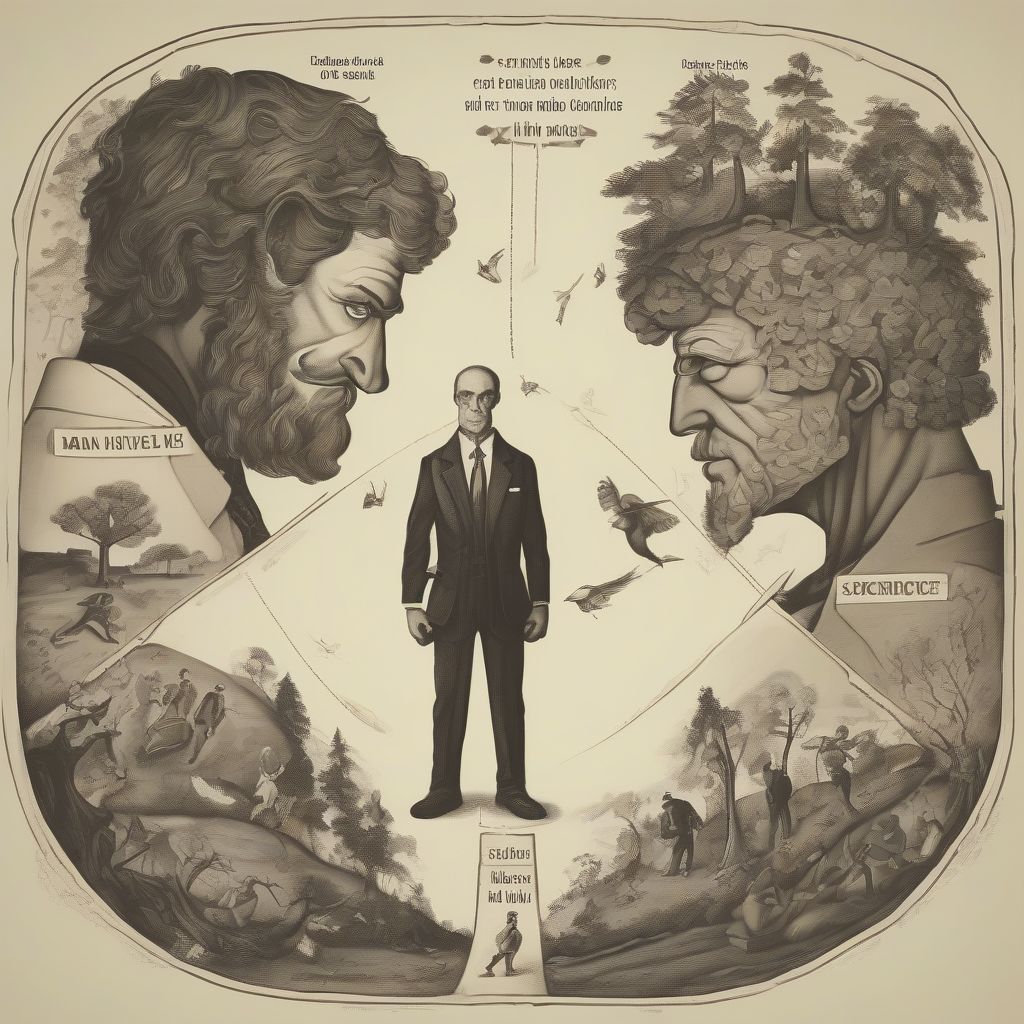Have you ever found yourself so engrossed in a book that you couldn’t put it down, desperate to know what happens next? That gripping sensation, my friends, is often the result of masterfully crafted conflict. Classic literature, in particular, provides us with timeless examples of how conflict and its resolution shape characters, drive narratives, and offer profound insights into the human condition.
Why Conflict is the Heart of a Good Story
Imagine a world where everything is perfect, harmonious, and utterly predictable. Sounds dreadfully dull, wouldn’t you agree? Conflict is the engine that propels a story forward. It creates tension, suspense, and forces characters to make difficult choices, revealing their true nature. In classic literature, conflicts are rarely simple battles of good versus evil. Instead, they delve into the complexities of human nature, exploring themes of love and loss, ambition and betrayal, justice and forgiveness.
Types of Conflict That Transcend Time
Classic literature masterfully utilizes various types of conflict:
1. Human vs. Human
This is the most common type of conflict, found in everything from Shakespeare’s plays to Jane Austen’s novels. Think of the bitter rivalry between the Montagues and Capulets in “Romeo and Juliet” or the clash of personalities in “Pride and Prejudice.”
2. Human vs. Self
Some of the most compelling conflicts are internal. Characters grapple with their own flaws, desires, and moral dilemmas. In “Hamlet,” the titular character’s indecision and internal turmoil form the crux of the play.
3. Human vs. Society
Classic literature often pits individuals against societal norms or oppressive systems. Harper Lee’s “To Kill a Mockingbird” tackles racial prejudice, while George Orwell’s “1984” paints a chilling picture of totalitarian control.
4. Human vs. Nature
This type of conflict throws humanity’s vulnerability into sharp relief. Think of the relentless power of the sea in “Moby Dick” or the unforgiving wilderness in Jack London’s “The Call of the Wild.”
 Classic Literature Conflict
Classic Literature Conflict
The Art of Resolution: Finding Meaning in the Aftermath
Conflict without resolution leaves readers feeling unsatisfied. Classic literature understands this, offering various forms of resolution:
- Triumphant: The protagonist overcomes obstacles and achieves their goals, as seen in “The Odyssey.”
- Tragic: Despite their best efforts, the protagonist succumbs to fate or their own flaws, leading to a devastating end, as in “Macbeth.”
- Open-Ended: The conflict is not fully resolved, leaving the reader to ponder the implications and possible outcomes, a technique used in “The Great Gatsby.”
[amazon bestseller=”classic literature”]
Lessons from Literary Conflict: A Timeless Mirror
Why are we still captivated by stories written centuries ago? Because classic literature, through its exploration of conflict and resolution, reveals universal truths about the human experience:
- The Complexity of Morality: Classic literature rarely offers easy answers. It forces us to confront difficult questions and grapple with the grey areas of right and wrong.
- The Power of Resilience: Whether facing internal demons or external adversaries, characters in classic literature often display remarkable resilience, reminding us of the strength of the human spirit.
- The Importance of Empathy: By stepping into the shoes of characters wrestling with conflict, we cultivate empathy and a deeper understanding of ourselves and others.
Conflict: An Invitation to Reflect and Grow
The next time you delve into a piece of classic literature, pay attention to the conflicts that unfold. How do they shape the characters? What themes emerge? And most importantly, what lessons can you glean from their struggles and triumphs? Remember, the enduring power of classic literature lies not only in its timeless stories but also in its ability to spark meaningful reflection and personal growth.
